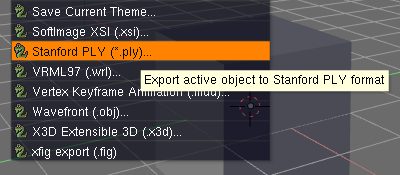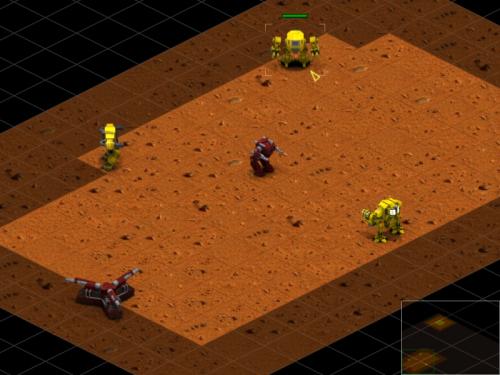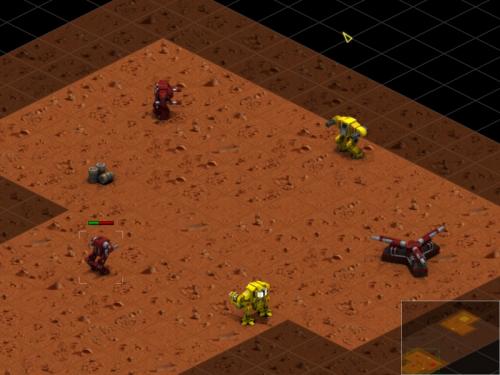I’ve cited Evolution War for the first time on this blog in my previous post, today I want to celebrate my return to SVN committing after a very long time. 😀

Revision 71 adds the support for a real Stanford PLY parser and loader, while the one I coded for my graphic class library is very primitive, expecting a hard-coded order for data, this one shouldn’t have any kind of problem with every well-formed PLY file.
For example, while the hard-coded loader can only accept a file like this:
ply format ascii 1.0 comment Created by Blender3D 249 - www.blender.org element vertex 4 property float x property float y property float z property float nx property float ny property float nz element face 3 property list uchar uint vertex_indices end_header 1.000000 2.000000 3.000000 -4.000000 -5.000000 6.000000 -1.000000 -2.000000 -3.000000 4.000000 5.000000 6.000000 1.000000 2.000000 3.000000 -4.000000 -5.000000 6.000000 -1.000000 -2.000000 -3.000000 4.000000 5.000000 6.000000 3 0 1 2 3 1 3 2 3 4 2 1
the parser loader can load even something like this:
ply format ascii 1.0 comment Created and shuffled by hand element face 3 property list uchar uint vertex_indices element skipme 3 property float skipfirst property float skipsecond element vertex 4 property float z property float nz property float y property float ny property float nx property float x end_header 3 0 1 2 3 1 3 2 3 4 2 1 0.0 0.0 0.0 0.0 0.0 0.0 3.000000 -6.000000 2.000000 -5.000000 -4.000000 1.000000 -3.000000 6.000000 -2.000000 5.000000 4.000000 -1.000000 3.000000 -6.000000 2.000000 -5.000000 -4.000000 1.000000 -3.000000 6.000000 -2.000000 5.000000 4.000000 -1.000000
But one of its most important feature resides in the ability to correctly load binary PLY files! 🙂
Related to it there’s a bug I would like to share with you together with the fix:
istream& istream::read (char* s, streamsize n); [...] ifstream ifs; unsigned int *uIndices; [...] ifs.read((char *) uIndices+(j*3), sizeof(unsigned int) * 3);
The read() method only accepts char pointers, so uIndices is casted, but the precedence goes to casting and not to native unsigned int pointer arithmetics, leading to catastrophic effects! 😮
The fix was as simple as the bug was subtle:
-ifs.read((char *) uIndices+(j*3), sizeof(unsigned int) * 3); +ifs.read((char *) (uIndices+(j*3)), sizeof(unsigned int) * 3)




